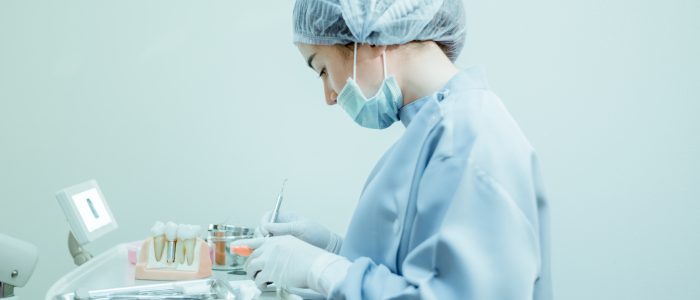Dental Deep Cleaning Alternatives & Procedures
Regular flossing and brushing are important parts of good oral health. Sometimes the doctor will recommend a stronger method of tooth cleaning known as “deep cleaning.”
Dental deep cleaning is an invasive procedure that, thanks to the anesthetic, involves little to no pain, accessing those hard-to-reach areas of the mouth that brushes and floss cannot.
Nevertheless, many patients still fear potential pain or discomfort and look for alternative solutions.
In today’s post, we’ll discuss some deep dental cleaning alternatives you can pursue.
What is Dental Deep Cleaning & How is it Different From Regular Cleaning?
During a regular cleaning, the tooth’s surface is cleaned and polished. Deep cleaning involves getting below the tooth’s surface to clean out bacteria trapped near the root of the tooth.
The deep cleaning procedure reduces inflammation, prevents further bone or tissue loss, and improves the health of gums and supportive structures.
Types of Deep Cleaning
Deep cleaning is often recommended by dentists who see a patient has gingivitis, bleeding gums, or more concerning oral health issues that need to be addressed.
- Preventative deep cleaning helps to reduce the risk of gum disease or, in its more serious form, periodontal disease.
- Therapeutic deep cleaning is more invasive and is reserved for those with existing gum disease.
Deep Cleaning Dental Tools
Deep cleaning involves the use of a thin tool inserted between the gums and teeth to access bacteria and tartar trapped near the root.
- Manual scaling instruments. Effective for shallow gum pockets and easier on the surface of the tooth. Ideal for composite or porcelain restorations or sensitive teeth.
- Ultrasonic scaling instruments. These emit energy to disintegrate the accumulated plaque on teeth. Can access deeper dental pockets more easily than manual instruments.
- Root planing instruments. The common instrument of choice is the curette, which removes subgingival calculus and soft tissue lining the periodontal pocket.
Dental Deep Cleaning Procedure
The procedure involves multiple steps, a total of two appointments.
Your dentist will diagnose the problem, take x-rays to check for bone loss, and see if pockets are deeper than what can be treated with standard cleaning.
Your periodontist will use a dental scaler to hand-scrape the plaque off of your teeth, reaching above and below your gum line. They may also use an ultrasonic tool to eliminate the tartar.
Scaling. This removes plaque and tatar from the tooth surface and below the gum line. It can be done manually or with an ultrasonic tool. It’s essential for preventing tooth decay and bad breath (halitosis).
Root planing. A rubbing motion is used to smooth over the rough spots on a tooth’s root surface. This removes bacterial toxins and improves the gum reattachment to the tooth.
Is Deep Cleaning Necessary?
For most people, no. They can maintain a good standard of oral health by visiting their dentist once or twice a year and consistently brushing and flossing.
Who Should Get a Deep Cleaning?
It depends on how severe your gum disease is.
If bacteria, plaque, and tartar are below the gum line into your tooth roots, deep cleaning is required to ensure you do not lose the tooth.
Signs You May Need Deep Cleaning
- Tender gums
- Swelling or bleeding of the gums
- Tooth loose and separated from gingivitis
- Chronic bad breath (halitosis)
- Persistent and unpleasant taste in the mouth
- Dentures not fitting correctly
What to Expect After Deep Cleaning Teeth
Post-procedure care is a recovery process that lasts two or three days. During this time, you may feel mild discomfort and gum sensitivity, and in a few cases, gum bleeding.
It’s important that you avoid eating foods that irritate the gums for a few days, and that includes anything spicy, crunchy, or hard.
Practice good oral hygiene. Rinse with saltwater. Use pain-relief meds like ibuprofen or acetaminophen.
Schedule a Dental Deep Cleaning with Northside Dental
We use the latest technologies and practices within the dental industry to provide you with top-tier oral health. Contact us today to get started.

